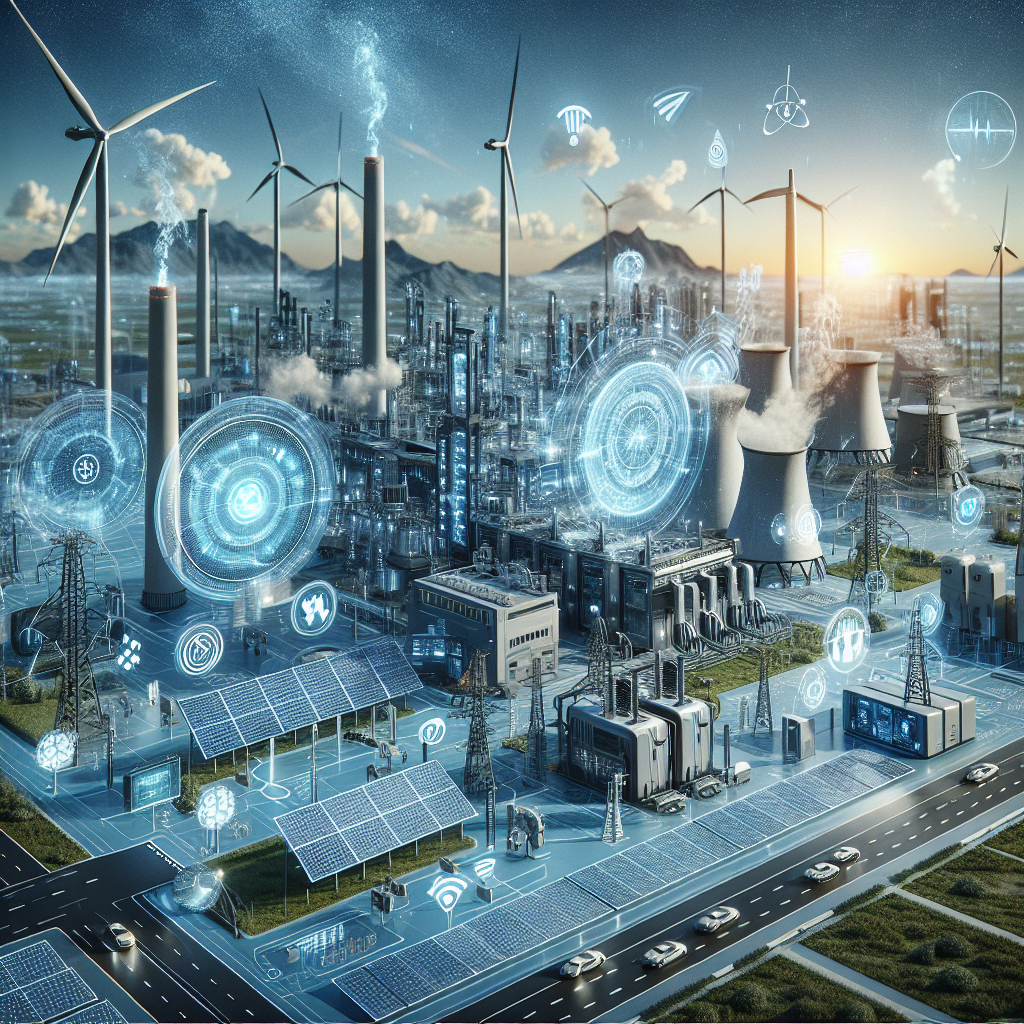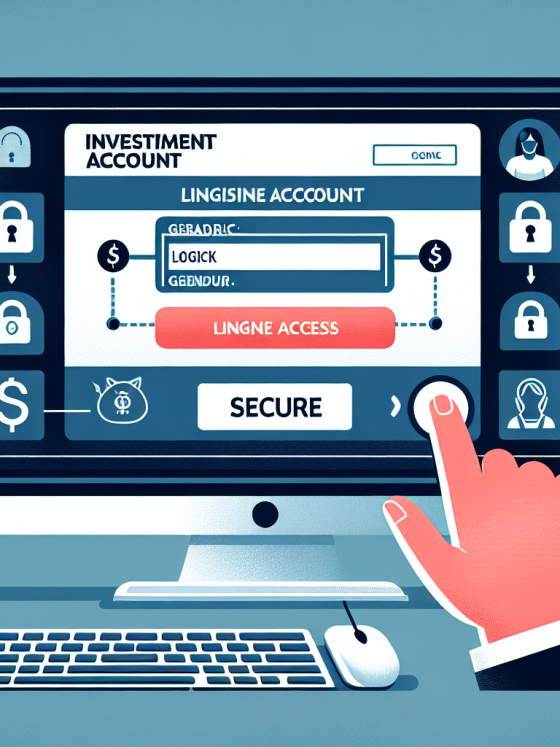Discovering FNGu: Unveiling the Future of Next-Generation Utilities

With an ever-changing technological ecosystem and the growing call for sustainable processes, Discovering FNGU: Unveiling The Future Of Next-Generation Utilities stands a groundbreaking look into where utilities are heading in our future. Traditional models face various challenges such as efficiency, resource management and environmental impacts which are addressed by FNGu coming into the frame not only with state-of-the-art technologies but also significantly new concepts for managing energy water waste. Innovations Along the Energy Value Chain is a part of larger research initiative to understand how FNGu are using smart grids, Internet of Things (IoT), Renewable energy sources and Data driven solutions in completely transforming utility services into scalable, resilient, intelligent and environmentally friendly operations. From this perspective, we explore how FNGu can-and should-path towards being able to fulfil the ever-increasing demands of contemporary society and innovate a radical alternative that drives technological development while mitigating ecological degradation. Keep following this story as we explore how FNGu is going to fundamentally revolutionize utility infrastructure, and lead us all towards a greener tomorrow.
The Genesis of FNGu
Focusing on the electricity, water, gas and telecommunications utility sectors The creation of FNGu (Future-Next-Generation Utilities), so named for its self-defining acronym. FNGu spawned from the failed concoction of advanced tech and go-green headers with a boiling pot that needed quick-resource-management. Developed in a futuristic think-tank by environmentalists, engineers and technologists as an ambitious new vision of utility services for the 21st century. They imagined a system of services able to operate sustainably by using smart grid functions and integrating all kinds of renewable energy sources. Always thinking long-term, FNGu was born out of the realization that user growth would be even more significant as stress on infrastructure both force to adapt environmentally and economically. With the advent of smart cities and digital transformation around the corner, FNGu development significantly picked up due to promises that it will lead us toward more resource efficient states as well as give power back unto consumer side. In the end, FNGu symbolizes an innovative model that could spell the future of utility companies in a world where utilities are even more efficient and correct further planetary stewardship.
Historical context of utilities
Utilities, as we know them today in the modern world has survived via its historical roots of serving essential services necessary for societal infrastructure and growth. In the earliest days, utility services (such as roads and aqueducts) were mainly developed by their great engineering skills. The history of technology shows that simple machines such as levers are first used to make work easier for humansnergineering technologies include subterranean sewage systems in ancient Indus Valley cities like Mohenjo-daro; open public toilets with washbasinsChichen Itza, Mexico 1000 AD); glazed sanitary ware from Givia Caele Ukol(in NES starvation Stara Zagora Thracica-Bulgaria),qanats.tap water cleaning qanatsabsorbent flushing toilet aggregate which combines waste extracted through them remain rooted India’s Tierney Akliaamr sohoff Kamand gemsoste Christian Biappsys Shored Maggba Sandoor zirway MacraalKawar JothaWolf Harout Zeebyadusa kalpap Soch-alebb Patency. Then, the 18th century turned everything on its head with the large-scale availability of centralized water supply and gas lighting moving to an even broader adoption of electricity – this was the Industrial Revolution. An architectural transformation-in which utilities advanced from localized, siloed islands to cohesive systems and networks-played out in response to the changing landscape of technology (commerce) and an essential industry witnessing inevitable urbanization. The 20th century brought a lot of consolidation and regulation to many basic services, so that everyone had access to things like electricity or gas or water by means of public/private partnerships. Digital transformation, renewable energy integration and smart grid technology are all forcing utilities to once again question how they manage their networks. This paves the way for FNGu, a company that intends to leverage state-of-the-art technology in order to reinvent utility services and improve productivity, sustainability & simultaneously address an increasing futuristic demand standards.Nonetheless it also aligns with environmental awareness.
Challenges faced by traditional utilities
Legacy utilities — the long-established providers of critical services like electricity, water and gas — are getting it from all angles in a 21st century world that hardly stands still. Rural water issues are complicated by aging infrastructure; many of the existing systems throughout rural America were installed decades ago and break down on a regular basis, incurring high maintenance costs. The integration of renewable generation also presents unique challenges for grid management and requires large-scale technology upgrades to ensure the stability, predictability, resilience etc. There are also enormous adaptations to be made and ongoing compliance efforts necessitated by regulatory pressures, strict environmental legislation. Another major threat is cyber security threats as utilities are increasingly digitizing their operations and this digitalization expose them to vulnerability against a potential high level of cyber-attacks midst could disrupt the essential services. On top of that, spiralling variations in fuel prices and revenues costs – coupled with rising customer demands for greener, more effective solutions at a lesser cost are some additional pressure on utilities. These compounding challenges signal an imperative for transformative solutions such as those possibly proposed by FNGu to reimagine and futureproof the utility sector.
Innovation driving FNGu
Innovation is at the heart of what propels FNGu (Next-Generation Utilities) forward, re-shaping utility services through latest technologies. At the heart of this innovation are breakthroughs in smart grids, which provide capabilities that allow energy distribution to be monitored and controlled commensurate with consumption much more effectively than current methods. In addition, the incorporation of renewable energy sources-such as solar and wind power-with advanced storing mechanisms alongside predictive analytics are being designed to make a seamless integration translating into a more secure yet environmentally friendly way that ensures consistent supply or minutes on hours end.
This results in far-reaching predictive maintenance using innovative combinations of IoT devices with AI, drastically lowering operational costs and reducing downtime. In addition, features aimed at customer transformation – such as personalized consumption insights and demand-side management practices -allow consumers of energy to manage their power usage better which in return lowers costs for them while also reducing carbon emissions. By continuously striving for innovation, FNGu is improving the operational efficiency of its system, in addition to aiding global sustainability efforts – A remarkable step towards a smarter and greener tomorrow.
Key Features of FNGu
Future of Next-generation Utilities (FNGu) is an integrated and intelligent utility management system to provide cutting edge technology with the sustainability touch. A primary aspect of FNgu is its incorporation of intelligent grid technology that in turn makes electricity distribution more effective and reliable through continuous monitoring as well as automated command onResponse. This system guarantees the best distribution of energy, decreasing failures and providing efficiency against any interferences.
FNGu does double time with a focus on renewables, adding solar, wind and hydropower cleanly to the mix. This includes advanced analytics and AI-powered predictive maintenance solutions to proactively identify problems, before they can escalate driving downtime and operation costs.
The FNGu further provides a complete customer front end, offering users data relating to their own energy consumption behaviour so as to stimulate an increased level of energy saving conduct and improve the user experience through compelling applications. Its tough cybersecurity offers guarantees datasecurity and service integrity of the infrastructure from threats. When it comes to the utility industry, FNGu at large is set to disrupt and steer the storm towards a robust as well as sustainable future.
Integration of renewable energy sources
The Future of Next-Generation Utilities (FNGu) is truly transformative as renewable energy sources are being integrated into the utility landscape. With a growing global awareness surrounding the issue of climate change, there is an increasing need to rid our dependency on fossils fuels straight off. FNGu handles this by including solar, wind hydropower and geothermal power energy into its grid system therefore reducing greenhouse gas emissions as well with them improving on long-term supply in addition to sustainability of the healthiest cleanest source within korean peninsula. This is facilitated by advanced grid management technologies, which can handle demand and supply dynamically keeping everything balanced. AI and IoT play a role in the creation of smart grids: energy is redistributed based on up-to-date information that arrives at these networks, minimizing inefficiencies and waste. Energy storage solutions such as (e) batteries and pumped hydro storage are also required to overcome the intermittency aspects of renewables. With this 360-degree view, our energy landscape is extensive and reliable, supporting a low carbon or even zero-carbon future.
Smart grid technology
One of the transformative AgTech advancements is smart grid technology that epitomizes what a future electrical distribution and consumption world look like. While the traditional power grid operates in mostly a one-way flow of electricity from generation to consumer, the smart grid leverages advanced information and communication technologies that work together with its physical facilities (asset management) – such transmission lines. All easy, care of this intelligent system that is not monitoring in real-time and communicating back dynamically to be actionable when supply/demand varies… – Less
Other advantages are better overall efficiency, reliability and sustainability. In this age, smart grids are set up for energy optimization with less wastage and perfect integration of renewable sources. They enable distributed generation, producing power at home and on rooftops or small generating stations located near consumption which can also reduce transmission losses and increase resilience to outages. In the process, consumers have even more control over their energy use-enabling better-informed decision-making and potential savings.
With extensive automation and data analytics to empower providers AND consumers, the smart grid is gearing up turn utilities on their head and prepare them for utility-to-modern-world interaction; a huge leap towards energy efficiency and sustainability.
Consumer empowerment tools
The transformation catalyzed by FNGu means consumer empowerment tools are central to the transition, ushering in a new era where energy consumers have an unparalleled level of control and insight into how their keystrokes translate directly to consumption. Typically delivered in the form of user-friendly mobile applications and web-based dashboards, these tools enable consumers to track their garment usage live together with periodic data analyses offered for improving energy efficiency. Features like tailored hints, predictions of use and financial rewards for reducing utilization not solely improve customers vs. helping engagement however encourage proactive intervention within the vitality preservation endeavours as effectively Smart home integrations can also enable consumers to automate energy saving practices and incorporate renewable sources of power into their daily life even more effortlessly. They put actionable data and insights in the hands of consumers, encourage a more dynamic and sustainable energy landscape down to each individual consumer level – shifting behavior towards broader environmental aims and heralding an era where utilities are also customer-centric services.
Sustainable practices and policies
FNGu would help to deliver these essential sustainable practices and policies in upcoming utilities spheres, ensuring that energy production and consumption be more closely aligned with environment stewardship. A part of this is the introduction of solar, wind and hydro electric power as renewable energy sources to reduce reliance on fossil fuels and limit CO2 emissions. The use of energy-efficient operations in combination with advancements to the grid architecture can lead not only to improved distribution and less waste, but resistance by utilities as well. Boosting policies that encourage the use of green energy like tax credits on renewables infrastructures, and toughened up emissions regulations can greatly advance this shift toward sustainable utilities. Strong focus on circular economy principles to ensure re-use, recycle and effective resource management working towards long-term ecological balance. FNGu works to meet energy demands today, while at the same time protecting this beautiful planet for future generations; we’re aiming to set new norms in terms of how utilities can operate with and benefit from green technology.
Technological Advancements
From electricity generation and distribution to wholesale market, innovations will affect the whole value chain of next-generation utilities (FNGu) which could really be a game changer in how energy is produced, transmitted, delivered. They have revolutionized the energy industry through smart grid technology by enabling monitoring and controlling power flows in real time that optimizes efficiency, flexibility as well as reliability. Advanced sensors, automation and data analytics are revolutionizing energy delivery with grid modernization – providing timely information for predictive maintenance that could save months of system downtime. Recent advances in energy storage, including high-capacity batteries and new types of bulk-power storage systems, have made such bolsters increasingly feasible as sources like solar or wind grow. In addition, breakthroughs in blockchain technology are transforming energy dealings with safe, transparent and decentralized platforms for peer-to-peer trading energy. By using artificial intelligence (AI) and machine learning, utilities can better match supply and demand patterns while optimizing resource use which results in personalized consumer services that increase efficiency. These innovations are revolutionizing the industry, advancing new smart energy landscapes that could transform utilities for a smarter future.
IoT and data analytics
One of such cornerstones in the next generation utilities being envisioned with FNGu, is possible by integrating Internet of Things (IoT) and data analytics. IoT provides interoperability between various devices and sensors with an ability to collect data on real-time basis for energy consumption, grid health or equipment performance. With the help of analytical tools it can be scrutinized in minute detail, patterns identified and failures predicted so that operational efficiencies may be maximized. Predictive analytics to forecast, for example an early detection of any potential problems with the utility infrastructure that enables maintenance and lower downtime. In addition, with data-driven insights utility providers are able to experiment complex pricing models and optimize energy distribution based on consumption patterns besides offering tailored consumer services. Consequently, this combination of IoT and data analytics further strengthens utilities by enabling a reliable, cost effective and customer focused environment producing sustainable advancement in the utility sector. At their core, these are the enabling technologies that power a transformation to smarter and more adaptive next generation utilities.
Blockchain for transactions
The potential of blockchain technology to transform the utilities sector could provide more secure, transparent and efficient transactions. Utility transactions as practiced today are time-consuming, error-prone and subject to fraud. Blockchain tech takes these actions and records everything in an immutable, transparent ledger for the better while reducing reliance on third-party verification making it a tamper-proof process.
Blockchain benefits next-generation utilities (BNGu) with real-time monitoring and automatic settlement of energy trade. Blockchain characteristic such as smart contracts can trigger the completion of agreements automatedly when a defined condition is met, which will even more increase operational effectiveness. This is especially useful for microgrid management and peer-to-peer energy trading, so that consumers can buy/sell electricity without going through middlemen. Securing the integrity of a smart grid and enabling its connected devices to automatically process utility transactions will not only boost consumer trust and confidence but also create opportunities for optimization through peak shaving, load balancing, arbitrage across regional markets enabled by blockchain.
Artificial intelligence for predictive maintenance
The use of Artificial intelligence (AI) for predictive maintenance in various utilities is transforming the industry by improving the efficiency and availability of infrastructure management. AI-based systems can predict potential equipment failures before an unplanned breakdown, and avert them through advanced machine learning algorithms along with real time data analytics. AI can monitor the health of machines using sensors, and IoT devices to catch anomalies or wear patterns that a human inspection may miss. Additionally, it pinpoints failures before they happen giving enough time for maintenance teams by planning based on predictive analysis leading to operational cost optimization as well extending lifespan of critical assets in long run In addition, AI-enabled predictive maintenance is also part of sustainability efforts, as it increases energy efficiency and therefore helps to minimize waste. The utilities industry is challenged by aging infrastructure and mounting pressure on deliverables leading to the need for predictive maintenance enabled through AI becoming a critical step in making utility networks smarter, more resilient, prepared for tomorrow.
Cybersecurity measures
Robust cybersecurity practices are essential as the industry moves closer to revealing the future of next-gen utilities via FNGu. Since the digitalization in energy sector is increasing, there are more and more interconnections between all units across different regions. Strong cybersecurity safeguards safeguard vulnerable critical infrastructure and sensitive consumer information from unauthorized access or cyberattacks. Ensuring that all systems, devices and automation capabilities of FNGu are protected can only be accomplished through the deployment of advanced encryption methods as well multi-factor/authentication (MFA) combined with continuous network monitoring. It also imparts a habit of cybersecurity awareness and standard training for the employees which strengthens human defense lines. If you have a proactive perspective (for example, threat intelligence and incident response plans) then potential vulnerabilities can be quickly identified and mitigated. At its core, by putting cybersecurity first FNGu can enable the new technology that is foundational to next-generation utility services while building confidence with end users and key stakeholders as well as meeting regulatory mandates.
Benefits to Consumers and the Environment
The introduction of FNGu, or Future of Next Generation Utilities highlights numerous advantages for consumers and the environment. Consumers…FNGu thereby offers a preview of consumers future, where energy use is now as intelligent and efficient as our phones. Advanced meters and live analytics enable consumers to track their energy consumption through real-time data that could lead to lower electricity bills based on smarter utilisation of power. In addition, through the use of renewable energy sources managed by FNGu technologies for a more secure and sustainable supply that is less dependent on fossil fuels, future-oriented preventive measures to enhance energy security.
Although renewable energy (such as solar and wind) was not the focus of FNGu, they definitely contribute to a healthier environment, especially when looking at this from an environmental perspective by reducing carbon footprints which helps fight climate change. The smart grid infrastructure avoids waste of energy, increases the use of alternative and green sources to produce it for example when solar or wind is available (distributed generation). The FNGu as such not only reduces greenhouse gas emissions significantly and promotes sustainable resource management but is also a progressive step towards more resilience, security of energy supply in the long term to an added environmental benefit for all parties involved.
Cost efficiency and savings
FNGu, or next-generation utilities are showing the way to a new era for cost efficiency and savings. These sophisticated systems leverage the latest technologies such as intelligent grids, IoT or AI-based analytics to maximize resource utilization and reduce waste. The precision control, and the prediction monitoring with a data-driven approach is helping in saving operational costs as it provide real -time monitoring,OenguinsArtificial Intelligencequery support engine but also. By distributing energy and patterns of use automatically, its consumption is optimized making utilities less burdensome due to waste.
Similarly, discovering and addressing issues before they become problems means less time taken out for maintenance. From a customer perspective, FNGu means reduced utility bills via time-of-use (TOU) plans that reward energy consumption during non-peak hours. The utilities companies win with more streamlined operations and reduced labor costs, while the consumers benefit from less unpredictable spikes in their expenses. Ultimately, FNGu offers a more economically viable and sustainable solution leading to the potential for much larger cost saving for providers as well as their clients in future.
Enhanced reliability and service quality
A much needed stepped-change in reliability and service quality inevitably sits at the heart of how we find FNGu (or both) are setting-up next-generation utilities across their influence. FNGu uses the latest, most advanced technologies in order to maximize uptime and guarantee uninterrupted provisioning of utility services (such as Electricity, Water & Gas). By connecting with real-time monitoring systems and predictive maintenance algorithms, the FNGu can preemptively deal to ensure that potential issues are resolved before they become Big Issues. This way of working means that we can move from a reactive mode to being proactive, preventing service outages while also delivering stable and reliable services. Moreover, this is accompanied with personalized service offerings through customer-centric digital platforms that also enable real-time usage tracking and translates into faster issue resolution on service-front. As a result, customers enjoy higher satisfaction and increased trust in utility providers. The added safety, reliability and improved service with FNGu lay a foundation for next-generation utilities that leap over current dirty infrastructure to accelerate better-performing more resilient infrastructure.
Reduced carbon footprint
The introduction of FNGu, the next-generation utility will have a huge impact on environmental sustainability mainly by cutting down carbon footprint. FNGu optimizes energy consumption and reduces waste by integrating smart grids, renewable energies and AI-driven energy management systems. Smart grids make electricity delivered in a more reliable way, leading to less dependence on traditional power plants that generate large amounts of CO2. It seamlessly integrates renewable sources, and reducing dependence on fossil fuels is thereby slashing greenhouse gas emissions. Automated intelligent energy management which provides real-time feedback and response to demand; power resources are deployed more efficiently. Additionally, FNGu increases consumers’ interest in energy-saving by showing them real-time consumption data and customized advices which lead to green habitforming. This integrated model reduces the ecological footprint of utilities and provides a template for long-term, environmentally-friendly infrastructure development that benefits future generations on Earth.
Support for community-based initiatives
One of the pillars on which FNGu intends to build next-generation utilities is by supporting community-based projects. Working to help bring communities back into the equation of how their energy is consumed, FNGuide ensures that people can be active advocates for themselves by promoting and investing in projects which circle around local water management connections ideally leading toward waste reduction. This usually means establishing a solar or wind energy source, community gardens to address sustainable food production and recycling/composting programs that reduce waste. In addition to financial aid, collaboration between FNGu and these projects do not involve only money but also technical knowledge (e.g. iOS engineer), educational resource for free of charge as well as provide a place that all startups to join together in order their business is creative & sustainable reels out its positive impacts with sustainability on the long run encouraged by : In doing so, it not only caters for local needs but also ensures the towns are strong enough to look after themselves. Additionally, focus on grass roots means providing solutions locally designed to the local context/ constraints and opportunities = inclusion + sustainability. From the ground up, FNGu is pioneering a culture of sustainability and innovation that ensures a greener, more efficient tomorrow for everyone.
So what have we concluded?
In conclusion, Discovering FNGu: Unveiling the Future of Next-Generation Utilities is an extensive investigation into how future-forward utility solutions can change everything. And with the introduction of FNGu driven by cutting-edge technologies, it sets to change efficiency, reliability and sustainability in utilities. The rise of the utility 2.0 will not stop at technological convergence but it marks a radical change in how we can understand and conceive services that go beyond utilities themselves as seen today. The data derived from FNGu are expected to have transformative impacts on the ways in which urban energy, water and waste infrastructures are managed. Policymakers, industry leaders and consumers must rally behind these innovations to nurture an ecosystem that is conducive for them. In the end, FNGu is an expression of human innovation and a critical next wave in our long journey to sustainable living-a future where necessary services transform along with humanity into higher and healther expressions.


